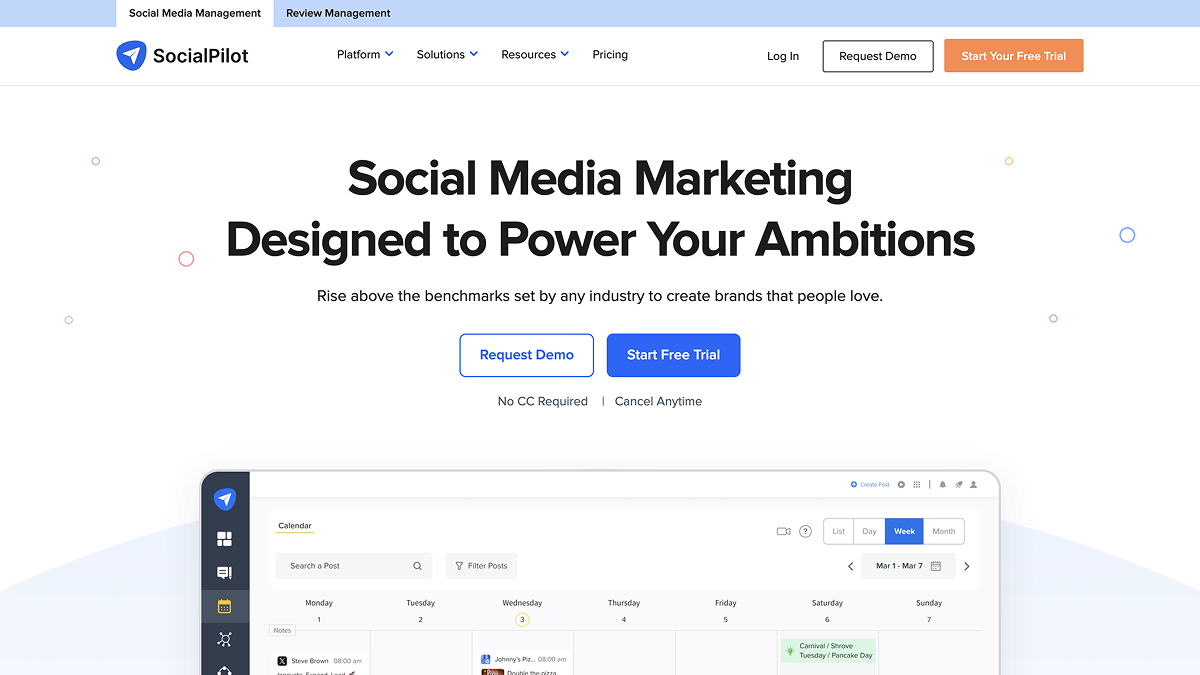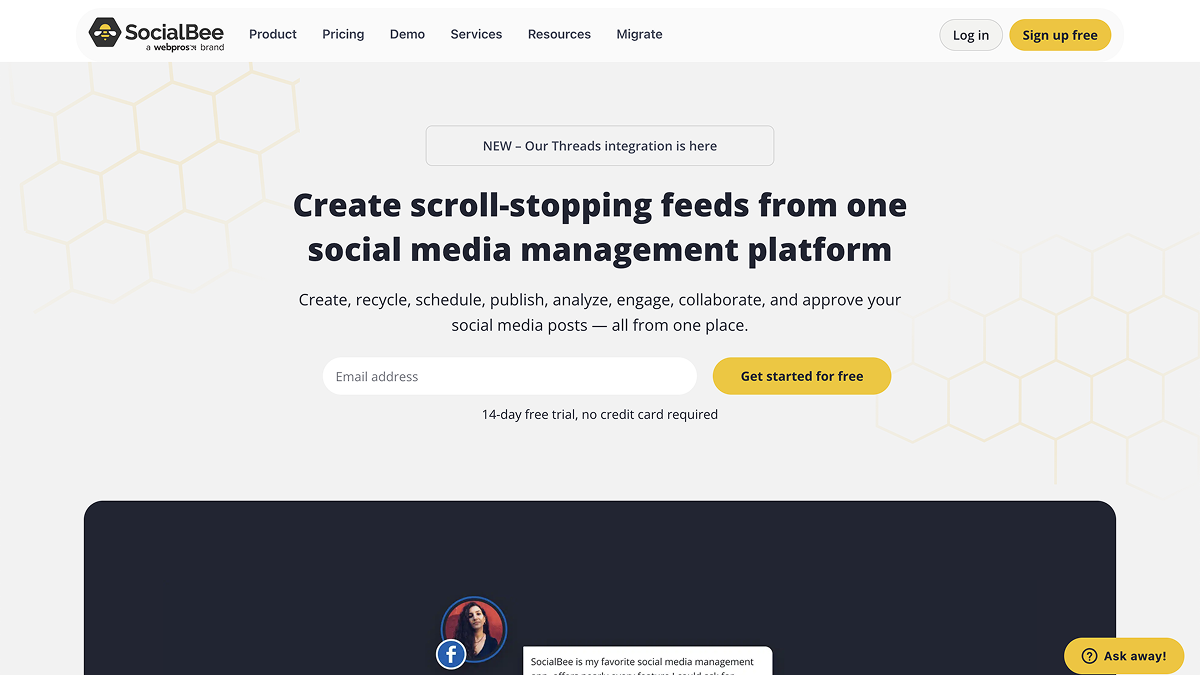What are social media management tools
Social media management tools are software applications designed to help individuals and businesses streamline their social media marketing efforts. These tools offer a range of features that allow users to schedule posts, track engagement, analyze performance metrics, and manage multiple social media accounts from a single platform. By consolidating these tasks, social media management tools save time and improve efficiency, making them essential for marketers looking to enhance their online presence.
One of the key benefits of using social media management tools is the ability to schedule content in advance. This feature enables users to plan their social media strategy effectively, ensuring that posts are published at optimal times to reach their target audience. Additionally, many tools provide analytics and reporting features that help users monitor engagement levels, follower growth, and overall performance across different platforms. This data-driven approach allows businesses to make informed decisions and adjust their strategies based on what resonates most with their audience.
Moreover, social media management tools often come equipped with collaboration features, which are particularly beneficial for teams working on social media campaigns. With tools that facilitate communication and workflow management, team members can easily share ideas, assign tasks, and track progress. Some popular social media management tools include Hootsuite, Buffer, and Sprout Social, each offering unique functionalities tailored to different user needs. By leveraging these tools, businesses can enhance their social media presence, engage with their audience more effectively, and ultimately achieve better marketing results.
Best Social Media Management Tools
When it comes to effective social media marketing, leveraging the right social media management tools can make all the difference. These tools streamline the process of scheduling posts, monitoring engagement, and analyzing performance across various platforms. Among the best social media management tools available today are Hootsuite, Buffer, and Sprout Social. Each of these tools offers unique features that cater to different needs, ensuring that businesses, from small startups to large corporations, can find a solution that fits their specific requirements.
Hootsuite stands out for its comprehensive dashboard that allows users to manage multiple social media accounts in one place. With its robust analytics features, you can track performance metrics and audience engagement, enabling you to refine your strategy for better results. Buffer, on the other hand, excels in its user-friendly interface and scheduling capabilities. It allows users to plan and publish content seamlessly across various platforms while providing insights into post engagement to help optimize future content. For businesses looking for advanced analytics and social listening capabilities, Sprout Social offers in-depth reports and tools to monitor brand mentions and audience sentiment, making it an excellent choice for those focused on reputation management.

SocialPilot is a robust social media management tool designed to streamline and enhance your online presence. Catering to businesses, marketers, and agencies, it offers an array of features including scheduling posts, analyzing performance, and collaborating with team members. With its intuitive interface and powerful analytics, SocialPilot empowers users to effectively manage multiple social media accounts, drive engagement, and gain valuable insights into audience behavior. Whether you're looking to boost brand visibility or optimize your content strategy, SocialPilot provides the tools necessary to elevate your social media marketing efforts.

Socialbee is a powerful social media management tool designed to streamline and enhance your online presence. With its intuitive interface and robust features, Socialbee enables users to efficiently schedule, curate, and analyze content across multiple platforms. Whether you're a small business owner, a digital marketer, or a social media manager, Socialbee offers customizable categories and automation options to ensure your content reaches the right audience at the right time. By harnessing the power of Socialbee, you can elevate your social media strategy, boost engagement, and ultimately drive growth for your brand.
How to choose the social media management tool
Choosing the right social media management tool is crucial for effectively managing your online presence and maximizing engagement with your audience. With a plethora of options available, it’s important to consider several key factors to find the tool that best aligns with your needs. Start by assessing the size of your business and your specific goals. For instance, small businesses may benefit from more affordable, user-friendly options that offer essential features, while larger organizations might require advanced analytics and team collaboration functionalities. Clearly defining your objectives—whether it’s increasing brand awareness, driving website traffic, or enhancing customer service—will help narrow down your choices significantly.
Another critical aspect to consider is the features offered by various social media management tools. Look for tools that provide comprehensive scheduling, monitoring, and analytics capabilities. Features like content calendars, post scheduling, and performance tracking are essential for optimizing your social media strategy. Additionally, consider integrations with other platforms you may already use, such as email marketing services, customer relationship management (CRM) systems, or e-commerce platforms. This will ensure a seamless workflow and enhance your overall marketing efforts. Don’t forget to evaluate the user interface; a tool that is intuitive and easy to navigate will save you time and improve productivity.
Finally, budget plays a significant role in your selection process. Social media management tools come in various pricing tiers, from free versions with limited functionalities to premium subscriptions that offer advanced features. It’s wise to take advantage of free trials or demos to explore the interface and capabilities before committing financially. Additionally, consider the level of customer support available, as having access to reliable assistance can be invaluable, especially when troubleshooting issues or learning how to maximize the tool’s potential. By carefully weighing these factors—business size and goals, essential features, and budget considerations—you can choose a social media management tool that not only meets your current needs but also scales with your growth in the dynamic world of social media marketing.
Best resources to get started with social media
When diving into the world of social media, having the right resources at your disposal can make all the difference in crafting a successful online presence. The best resources to get started with social media encompass a range of social media management tools, educational platforms, and community forums. These tools not only help streamline your social media strategy but also enhance your understanding of audience engagement and content creation. Popular social media management tools like Hootsuite, Buffer, and Sprout Social offer user-friendly interfaces that allow you to schedule posts, analyze performance metrics, and manage multiple accounts from a single dashboard.
In addition to these tools, various online courses and webinars can provide you with the foundational knowledge needed to navigate social media effectively. Websites like Coursera, Udemy, and HubSpot Academy offer a plethora of courses tailored to different skill levels, covering topics such as social media strategy, content marketing, and analytics. Engaging with these educational resources will equip you with essential skills and best practices, enabling you to create compelling content that resonates with your target audience. Furthermore, many of these platforms offer certifications that can bolster your credibility in the field of social media management.
Finally, joining online communities and forums dedicated to social media can provide invaluable support and insights. Platforms like Reddit, LinkedIn groups, and specialized Facebook communities allow you to connect with other professionals, share experiences, and stay updated on the latest trends and tools in social media management. By participating in discussions and seeking advice from seasoned experts, you can enhance your understanding of the ever-evolving landscape of social media. With the right mix of social media management tools, educational resources, and community support, you’ll be well-equipped to kickstart your journey and maximize your impact across social platforms.


